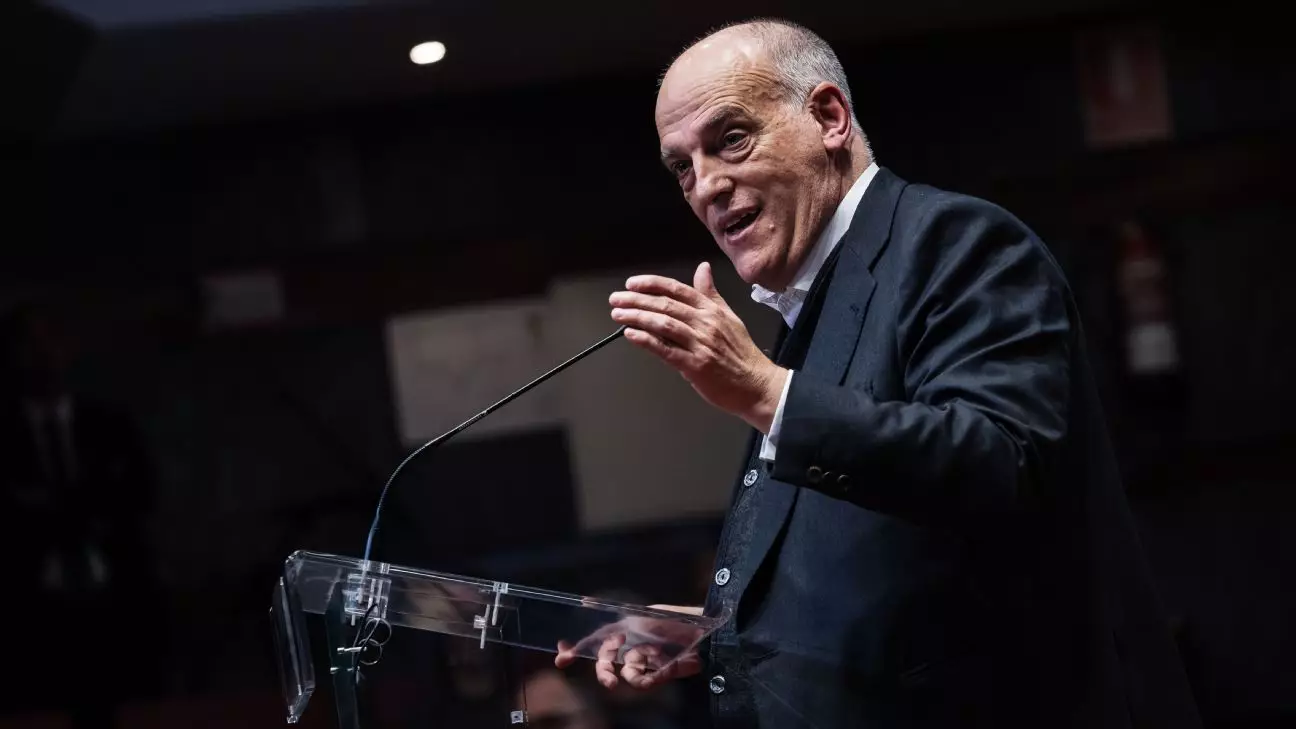In a significant development in the world of football, Javier Tebas, the president of LaLiga, has voiced strong objections against FIFA’s forthcoming Club World Cup, set to debut in the United States in 2025. His calls for the cancellation of this tournament, which he argues lacks the support of both leagues and the players’ union (FIFPRO), have ignited discussions about the growing tensions within global football governance. Tebas disclosed these concerns at the Forum of the European Union of Clubs in Brussels, where his criticisms painted a grim picture of the future of club football and the financial instability that could arise from inflated tournament schedules.
Tebas pointed out significant financial discrepancies concerning the audiovisual rights and sponsorships for the Club World Cup, stating that FIFA has yet to achieve the projected budget that surrounds this ambitious event. This lack of fiscal preparation raises questions about FIFA’s planning and execution. “You know that you do not have the sponsorships for that Club World Cup as you had budgeted,” he stated, urging FIFA to reconsider its commitment. Critics of FIFA’s expanded agendas argue that the organization has increasingly prioritized profit-making over the stability of domestic leagues and player welfare.
The Burden on Players and the Calendar Jamboree
The urgent nature of Tebas’s message is underscored by growing concerns over players’ mental and physical strain due to an overcrowded football schedule. The inherent risk of player burnout becomes glaringly apparent as top professionals like Manchester City’s Rodri have expressed fears about excessive workloads. Rodri cited personal experiences of playing an exhausting 63 matches in a season, leaving as many as 12 days of rest before a crucial international summer tournament. As the lines blur between club commitments and the increasing number of international fixtures, calls for the players to address their accessorial responsibilities are intensifying.
The mounting pressure led by FIFPRO alongside European Leagues has culminated in a formal complaint to the European Commission, alleging that FIFA is misusing its dual role as both organizer and regulatory body. The ramifications could signal a new, contentious era in which players and leagues confront federations about their welfare and operational integrity.
FIFA’s Position: A Dismissive Response?
In response to these burgeoning concerns, FIFA’s assertion that the Club World Cup will have negligible effects on the football calendar or player welfare has been met with skepticism. Executives at FIFA claim that the tournament’s infrequent occurrence—slated once every four years—minimizes any potential disruptions. Furthermore, the anticipated scale of the tournament is yet another topic stirring debate, as participants will be limited to a total of seven matches.
However, this perspective does not sidestep the reality that stakeholders across football are increasingly attuned to the challenges facing the sport. As the balance of governance continues to tip between profit-centric motives and the sustainability of player health and local leagues, the discourse surrounding the Club World Cup is likely to only escalate. The future of global football may hinge upon how effectively these contrasting interests can be reconciled.
The ongoing discourse surrounding the 2025 Club World Cup epitomizes a critical juncture for football, demanding careful consideration over how the game can evolve while ensuring the well-being of players and the integrity of leagues are upheld.

